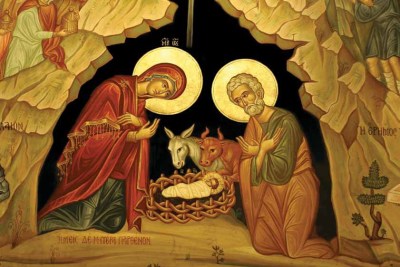The mural painted on the side of a building in the Deep Ellum warehouse district here is intentionally vague, simply showing a faceless man in a suit holding an umbrella over the words “Life in Deep Ellum.” Inside there are the trappings of a revitalization project, including an art gallery, a yoga studio and a business incubator, sharing the building with a coffee shop and a performance space.
It is Christianity which these emgergents are attempting to revitalize and some say you must first destroy what you need to build. So they have ditched nearly every trapping of Christian faith and identity. But will what they build actually be Christian or the Church?
Life in Deep Ellum
is part of a wave of experimentation around the country by evangelicals
to reinvent “church” in an increasingly secular culture, and it comes
as the megachurch boom of recent decades, with stadium seating for huge
crowds, Jumbotrons and smoke machines, faces strong headwinds. A
national decline in church attendance, the struggling economy and the
challenges of marketing to millennials have all led to the need for new
approaches.
“It’s unsettling for a movement that’s lasted 2,000 years to now find
that, ‘Oh, some of the things we always assumed would connect with the
community aren’t connecting with everyone in the community in the way
they used to,’ ” said Warren Bird, the director of research for the Leadership Network, a firm that tracks church trends.
According to a recent report by the Pew Research Center,
the percentage of Americans who are not affiliated with any religion is
on the rise, including a third of Americans under 30. Even so, nearly
80 percent of unaffiliated Americans say they believe in God, and close
to half say they pray at least once a month.
The “spiritual but not religious” category is an important audience that
evangelical leaders hope to reach in a culture that many believers call
“post-Christian.”
So they arrange meetings in movie theaters, schools, warehouses and
downtown entertainment districts. They house exercise studios and coffee
shops to draw more traffic. Many have even cast aside the words
“church” and “church service” in favor of terms like “spiritual
communities” and “gatherings,” with services that do not stick to any
script.
It seems that to be relevant, one must be irreverent -- disdaining anything that once defined Christianity and the Church. No script or plan is necessary. The whole thing is literally made up as they go along. Well, not exactly. They know the secular landscape pretty well and mirror back to the people some of the stuff the people themselves know and value -- technology, for example.
For new leaders coming out of seminary, “the cool thing is church
planting,” Mr. Bird said. “The uncool thing is to go into the
established church. Why that has taken over may speak to the
entrepreneurialism and innovation that today’s generation represents.”
That generation includes Mark Batterson, the 43-year-old pastor of National Community Church in Washington.
“If the kingdom of God had departments, we’d want to work in research and development,” Mr. Batterson said.
“It’s pretty low risk to wander into a bar or movie theater or hotel,”
Professor Thumma said. “It ends up delivering the message of relevance:
we’re just like you, we’re struggling, we might have a beer together —
and our faith is also relevant.”
Oh yeah... faith. Well, we cannot say exactly what we believe but we are pretty sure we do believe. . . something.
Maybe I am being harsh and unfair to these folks. But I am tired of those who want to save the Savior and redefine church out of the church. The Church has always has an abundance of saviors and God has no shortage of helpers to reshape the message and the messenger. The only problem is that there have been few, if any, lasting successes that did not embrace the faith once delivered to the saints and practice in accord with the tradition of the apostles.






















